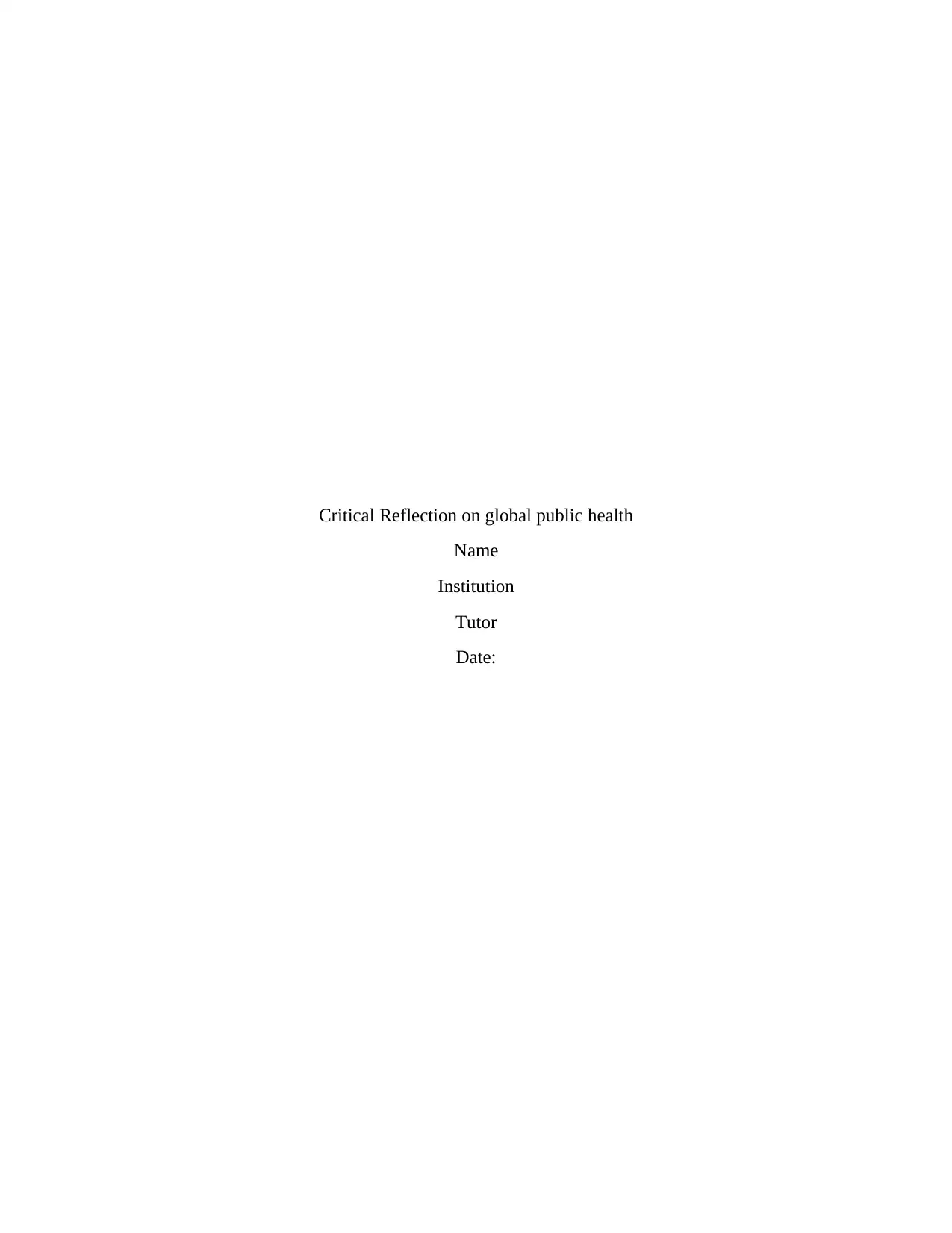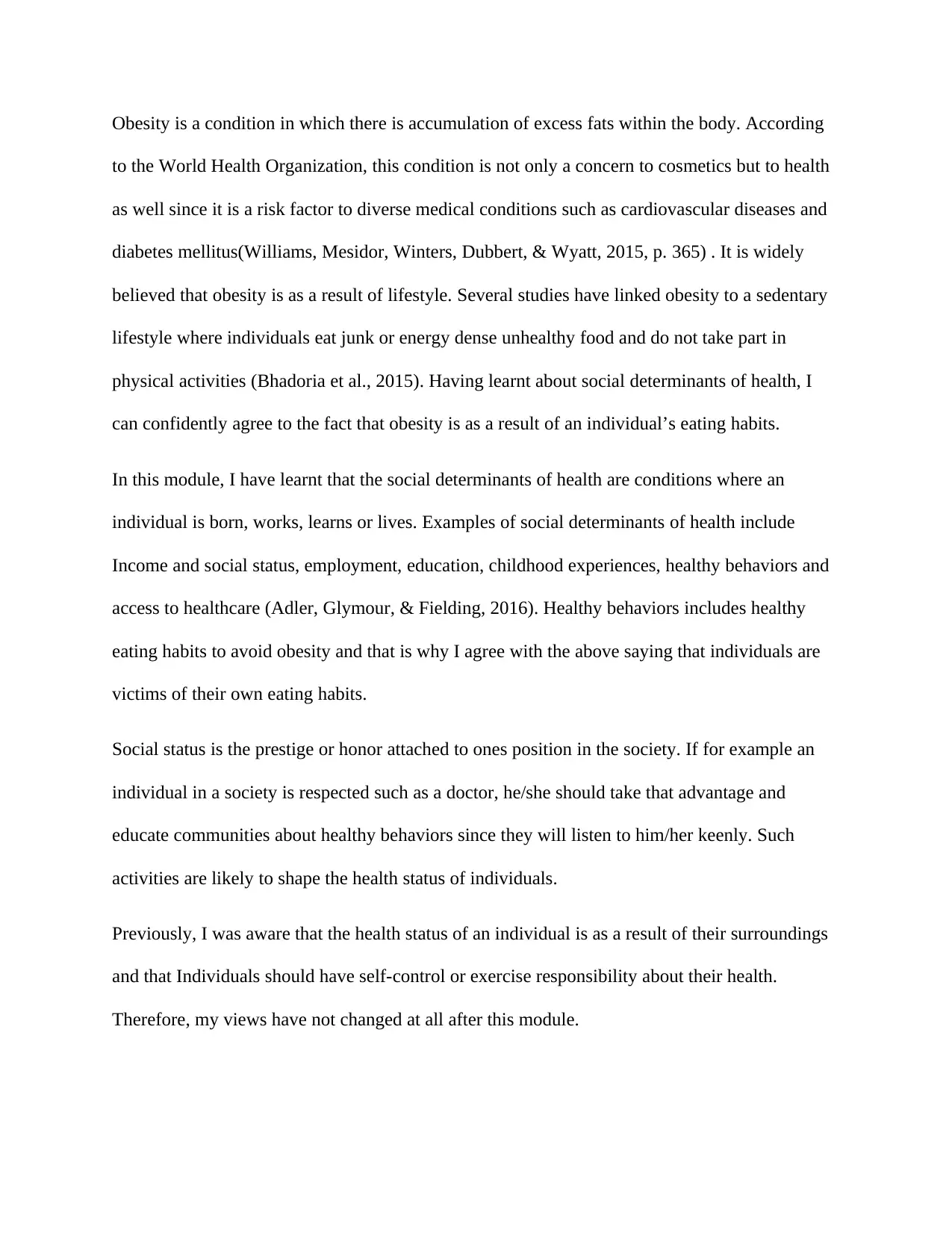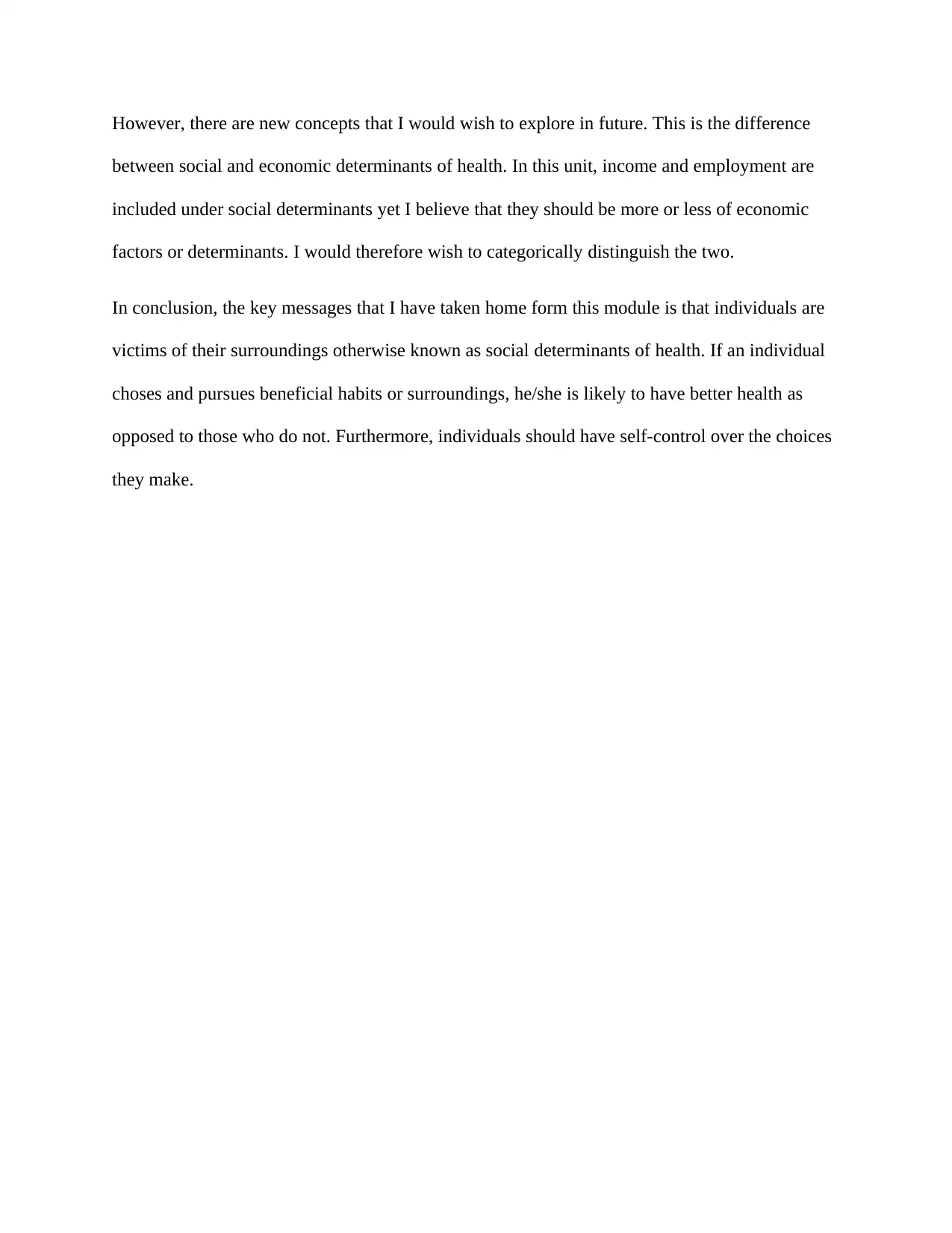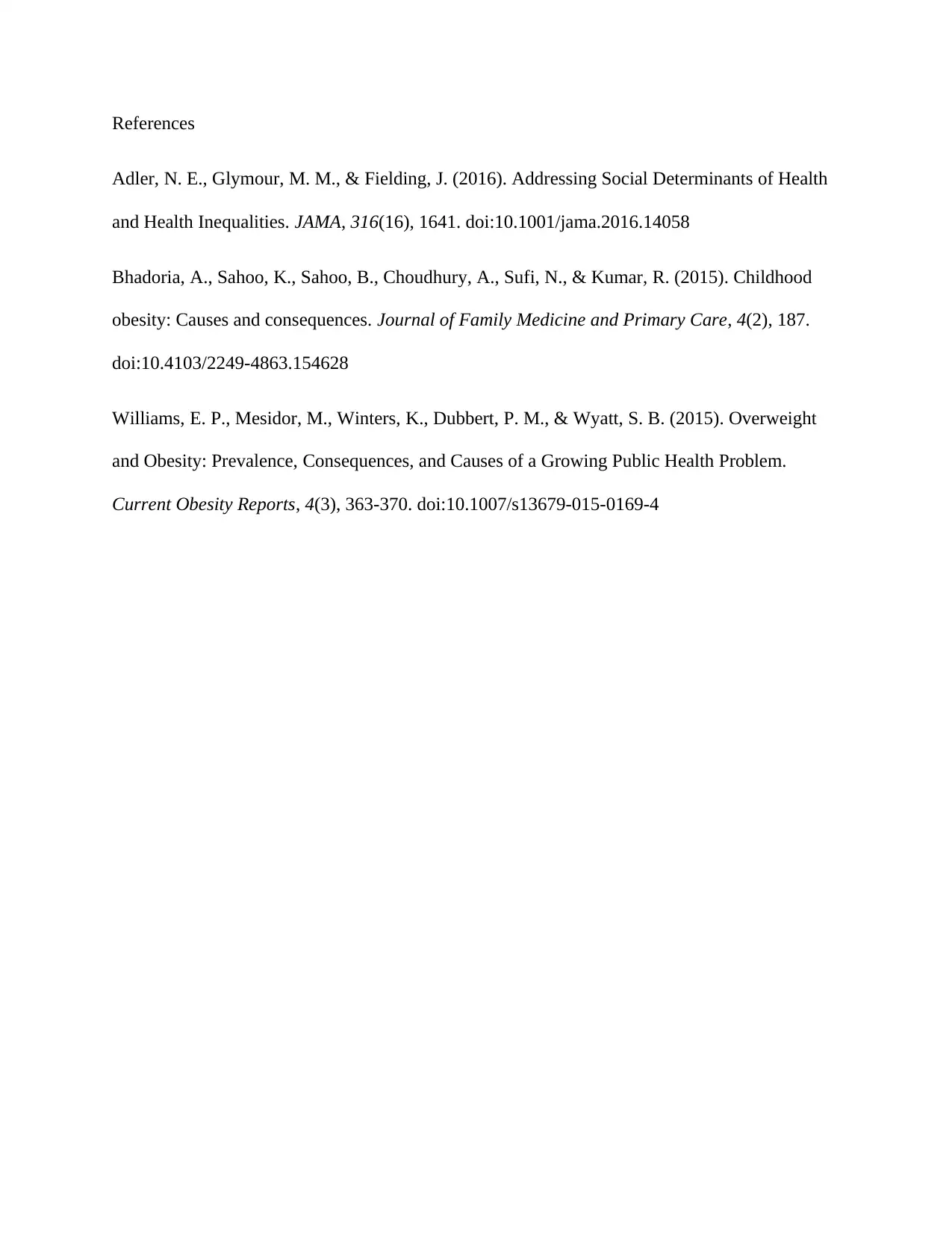Critical Reflection on Obesity and Social Determinants of Health
VerifiedAdded on 2022/12/29
|4
|634
|54
Journal and Reflective Writing
AI Summary
This reflective journal entry critically examines the issue of obesity within the context of global public health, focusing on the impact of social determinants of health. The author reflects on their understanding of obesity, which is defined as the accumulation of excess fats, and its links to various health conditions. The journal entry highlights the role of lifestyle factors, such as unhealthy eating habits and a sedentary lifestyle, in contributing to obesity. The author discusses the social determinants of health, including income, employment, education, and access to healthcare, and how these factors influence individual behaviors and health outcomes. The author agrees that obesity is a result of eating habits. The author also identifies areas for future exploration, such as distinguishing between social and economic determinants of health. The key takeaway is that individuals are influenced by their surroundings and should practice self-control to improve their health. The author references several studies to support their reflection.
1 out of 4










![[object Object]](/_next/static/media/star-bottom.7253800d.svg)